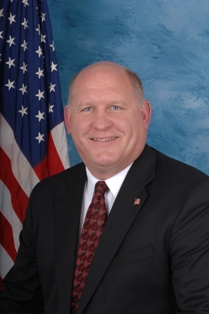Theo Bronkhorst appears to have had a long, smooth career as an African safari hunting guide, but a tempest has engulfed him since he allegedly helped Minnesota dentist Walter Palmer kill Cecil the lion.
On Wednesday, Bronkhorst arrived at a Zimbabwe court to face charges of poaching. After he exited a car wearing a camouflage baseball cap and dark glasses, he told CNN’s David McKenzie that the hunt was legal and that he hopes his lawyers will show it.
He thinks charging him is out of line. “I think it is frivolous, and I think it was wrong,” he said before walking into Hwange Magistrates’ Court near the national park of the same name, where Cecil once roamed.
The owner of the farm where Cecil died, Honest Trymore Ndlovu, also faces charges. He is accused of allowing the hunt on his land without proper permission and in violation of wildlife quotas.
Social media firestorm
Palmer allegedly paid the two $50,000 to set up the kill in early July that, by month’s end, boosted Palmer to global infamy as the despised antagonist in a social media firestorm against big game hunting.
The backlash has hit Bronkhorst as well. Since late July, Facebook users have posted thousands of indignant comments to a page attributed to the hunter guide.
Photos of dead wild animals with hunters posing over them holding rifles fill the page dedicated to a small business called Bushman Safaris Zimbabwe. According to the page, Bronkhorst founded the company in 1992.
In dozens of photos, hunters hold up the limp bodies of slain leopards, kneel over buffalo and next to elephants. Commenters berate the hunters as “sick,” “disgusting” or “pathetic.”
CNN is reaching out to Bronkhorst’s lawyer to confirm the authenticity of the Facebook page.
The Facebook page defends big game hunting, saying hunters contribute to wildlife conservation, an argument Bronkhorst repeated to CNN’s McKenzie.
“It’s an integral part of our country, and it’s got to continue,” he said. “And if we don’t use wildlife sustainably there will be no wildlife.”
Cecil’s killing
The social media uproar began, when a group called the Zimbabwe Conservation Task Force said Cecil the lion was lured out of an animal sanctuary in Zimbabwe with food and special scent then shot with a bow and arrow.
He was a prized lion in Zimbabwe’s Hwange National Park, where visitors reportedly sighted him frequently. A video of the animal, regal, indifferent and sleepy-eyed, has been widely disseminated.
He was a participant in a study that Oxford University in Britain was conducting, and he had been outfitted with a GPS collar.
His death wasn’t immediate.
Cecil lived 40 hours after the arrow shot, until the hunters tracked him down and shot him with a gun. He was then skinned and beheaded.
The hunters also tried to destroy the GPS collar that Cecil was wearing as part of research backed by Oxford University, the conservation group said.
Zimbabwean police arrested Bronkhorst and Ndlovu, and have requested Palmer’s extradition from the United States. U.S. officials have declined to comment on the request.
Palmer in hiding
Palmer has publicly apologized.
“I had no idea that the lion I took was a known, local favorite, was collared and part of a study until the end of the hunt,” Palmer said in a statement. “I relied on the expertise of my local professional guides to ensure a legal hunt.”
But he has been in hiding from the public outrage, speaking through a lawyer.
Palmer has shuttered his dental practice, and he and his family appear to have vacated their Minnesota home. Their Florida vacation house was sprayed with graffiti and pig’s feet strewn across the driveway, Florida Newstime reported.
And in front of the house and at his practice, stuffed toy animals have piled up in protest of the killing of the lion.
Global reaction
Cecil’s death garnered international attention.
A group of U.S. senators have vowed to introduce the CECIL Animal Trophies Act which will make it illegal to import the slain trophies back to the United States.
At least two U.S. airlines reportedly banned the transport of parts belonging to endangered animals into the country, since news of Cecil’s killing broke.
And in Zimbabwe, authorities have vowed to crack down on illegal hunting in the wake of Cecil’s death and have ordered the suspension of hunts targeting lions, leopards and elephants outside of Hwange National Park, as well as a broad investigation into hunting industry practices.
The United Nations General Assembly passed a resolution last month calling on all countries to crack down on illegal wildlife trafficking and poaching. The vote came after two years of work on the resolution and was not tied to Cecil’s death.
An animal protection group said Cecil’s death was sad “not only from an animal welfare perspective, but also for conservation reasons.”
African lion populations have fallen almost 60% over the past three decades, and as few as 32,000 of them remain in the wild, the International Fund for Animal Welfare said.
And as animals become rarer, trophy hunters — many of whom are Americans — are shelling out more money to guides willing to help hunt them down.



